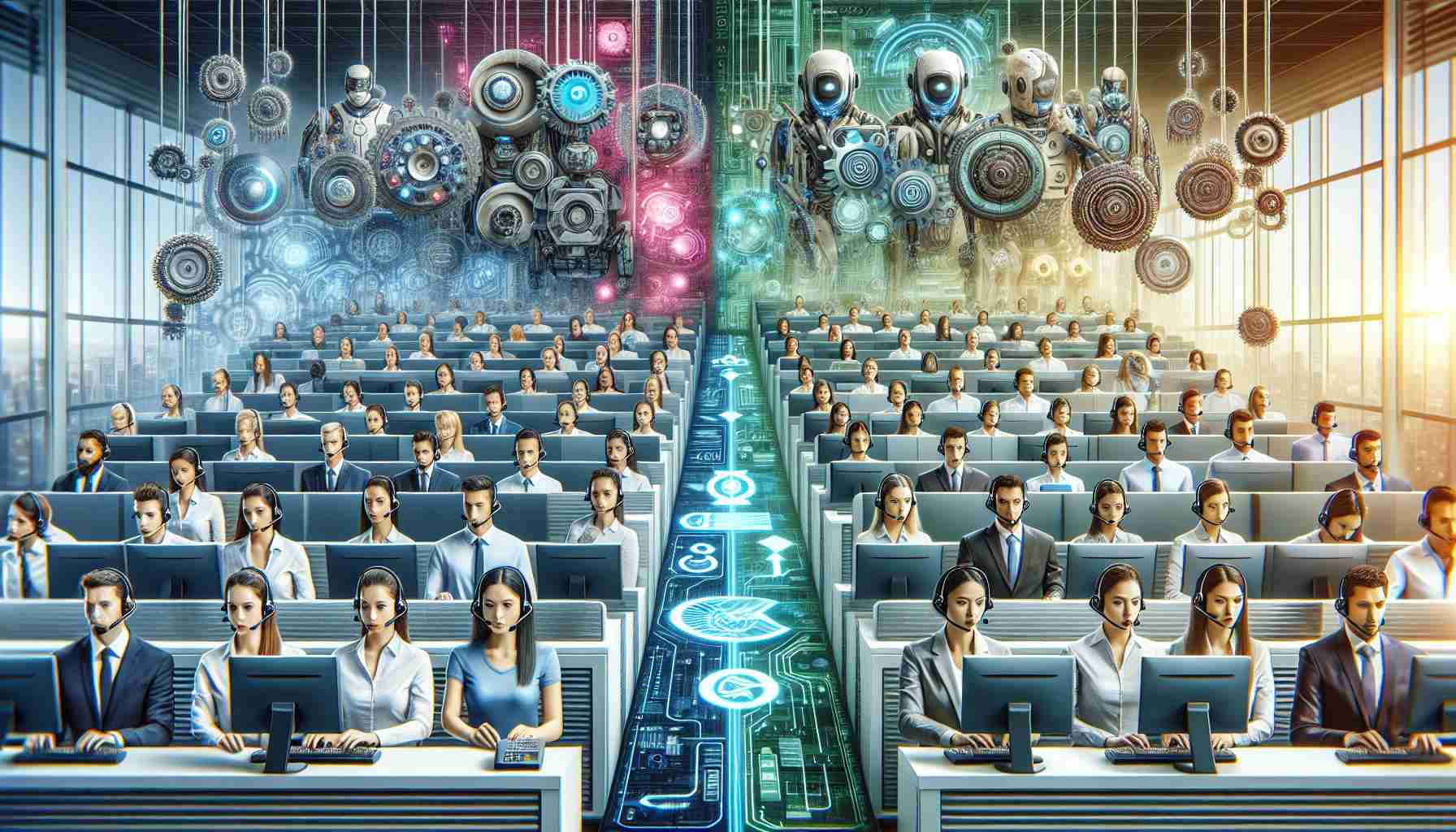Artificial intelligence is set to bring transformative changes to the world of customer service, indicating a potential shift in employment patterns in the near future. According to K Krithivasan, CEO of Tata Consultancy Services, a leading Indian corporation, the advancement of technology could soon diminish the need for traditional call centers. He explained that within the next year, the industry might see a significant replacement of customer service representatives with AI-driven chatbots and generative intelligence systems.
While job reductions have not yet been observed, K Krithivasan depicted a future in which widespread adoption of generative AI within multinational corporations will drastically alter the call center landscape. Historically, these centers have been instrumental in creating job opportunities in countries like India and the Philippines. A 2022 Gartner report estimates the current employment figure within this sector at approximately 17 million individuals.
K Krithivasan believes that chatbots will become adept at analyzing a customer’s call history and handling many tasks currently performed by human operators. Nevertheless, he considers predictions about the immediate impact of generative AI on jobs to be overstated, stressing the continuous overall employment rate but also the imminent need for more extensive workforce training.
Bill Gates recently shared his thoughts on the topic, suggesting that as generative AI becomes more prevalent, it could render some professions obsolete. Despite these ominous predictions, a survey by Indeed found that 9 out of 10 workers, including those over 65, are confident in their ability to adapt to changes in their professional roles. In Italy, 88% of respondents indicated their preparedness for workplace transformations expected within the next 18 months. Moreover, 56% expressed optimism about the increased use of technology at work.
Anticipated global benefits include boosted productivity (65%), enhanced communication (48%), and improved workplace well-being (42%). However, there remains a heightened awareness and some anxiety over the possibility that the rise of AI could lead to job losses, at least in the form they are known today.
Importance of the Evolution of Call Centers in Modern Business
The transformation of call centers via artificial intelligence is a subject of vital importance in the business world. It signals a paradigm shift in the nature of customer service and employment dynamics. Central questions concern the impact of AI on job availability, the ethics of replacing human workers with machines, and the profound changes in skill sets required for call center employees.
Key Questions and Answers
1. How will AI affect job opportunities in the call center industry?
The introduction of AI-driven technologies will inevitably streamline call center operations, reducing manual intervention. For low-complexity tasks, AI can provide quicker, more efficient service. However, this efficiency potentially leads to job redundancies in roles that AI can easily replace.
2. Can AI completely replace human interaction in customer service?
While AI can handle routine inquiries with efficiency, there remain complex and sensitive issues that require the empathy, understanding, and decision-making skills of human beings. AI complements human skills rather than replaces them entirely in these cases.
3. What are the new skills required by call center employees in the AI era?
As AI takes over routine tasks, the roles of human employees in call centers are shifting toward more complex problem-solving, emotional intelligence, technical knowledge to manage AI systems, and interpersonal skills that technology can’t emulate.
Key Challenges or Controversies
– Workforce Displacement: A major concern is the potential displacement of millions of workers specialized in customer service roles, with a significant impact on the economies of countries heavily dependent on call center-related jobs.
– Privacy Concerns: AI systems require access to vast amounts of data, including potentially sensitive customer information, raising privacy implications and the risk of data breaches.
– Ethical Implications: Automating jobs that have been historically performed by humans raises ethical questions about the responsibility of corporations towards their employees.
Advantages and Disadvantages
Advantages:
– Enhanced Efficiency: AI can quickly process and resolve customer inquiries, leading to increased productivity.
– 24/7 Service: AI-driven systems can offer customer support round the clock, even outside of traditional working hours.
– Consistency: AI can provide consistent answers to customer queries, potentially increasing customer satisfaction.
Disadvantages:
– Job Losses: AI’s ability to perform tasks traditionally handled by humans may lead to significant job reductions.
– Lack of Personal Touch: Customers may miss the personal interaction and empathy provided by human representatives.
– Data Security: Implementing AI in call centers increases the responsibility of safeguarding customer data against leaks and cyber threats.
For further reading on the transformation of industries through artificial intelligence, explore official resources such as those provided by leading consulting and technology research firms. Visit the Gartner website for reports on AI’s impact on the workforce and call centers in particular.

